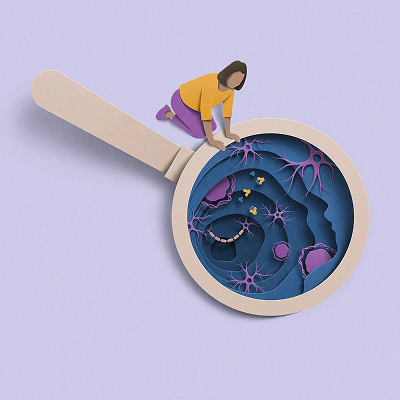Impact of Attacks
Unpredictable NMOSD attacks can cause irreversible damage


Permanent disability can occur after just one NMOSD attack
About 3 out of 4 people never fully recover from their first attack, and
recurring attacks can worsen their level of disability.
This data is from a retrospective multicenter study of 175 Caucasian adults who were
anti-AQP4 antibody-positive or -negative NMOSD.
Managing attacks
Don't wait until your next attack to learn about different treatment options. Talk to your
doctor about exploring a treatment that can help you reduce the risk of attacks.
Learn about an anti-AQP4 antibody-positive NMOSD
treatment
Long-term effects of NMOSD attacks in the body
NMOSD can affect all aspects of people’s lives, physically and mentally. Attacks can cause damage to the brain, spinal cord, and eyes—which may lead to irreversible damage, such as vision loss and paralysis.
Within 5 years of a first attack,
More than 40% of people with NMOSD are expected to become blind in at least one eye*
Approximately 1 out of 5 are expected to require a cane to walk*
*In a study of 163 people with NMOSD.


